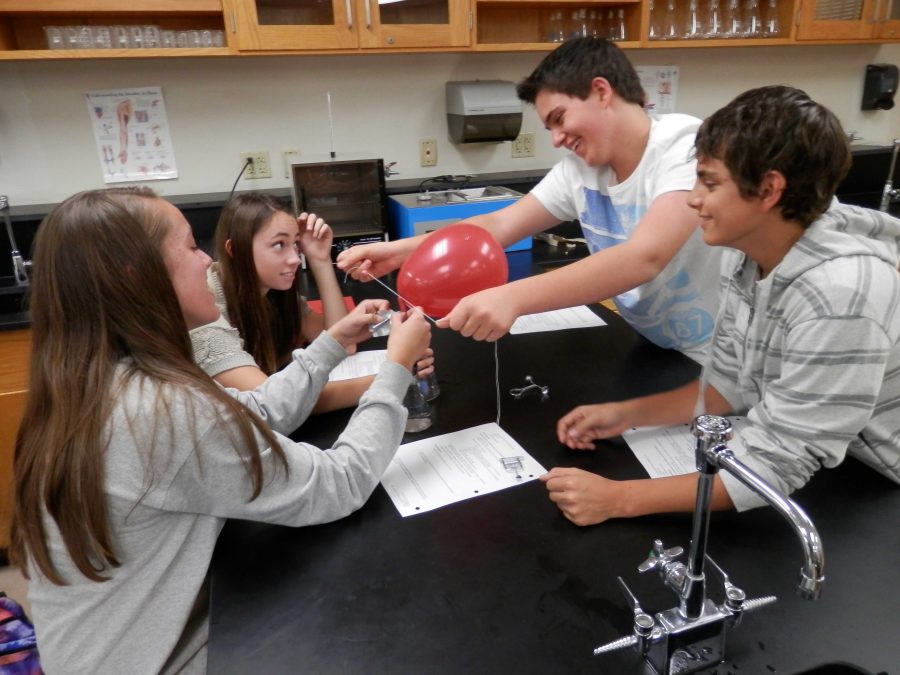Last year, the Medical Academy through Project Lead the Way came to Huntley High School. As the program continues to grow, new classes are being offered to students. Last year, it was Medical Skills and Services.
This year, the school implemented Principles of Biomedical Science.
Principles of Biomedical Science is taught in six classes per day, three of which are taught by biology teacher Paul Zielinski, and the remaining three of which are taught by biology and chemistry teacher Jeffrey Robinson.
The structure of the class is the opposite of most high school courses. Instead of learning about a topic, then doing a lab, students learn through experience.
“It’s a top-down approach. Instead of having a unit on macromolecules, we have a unit about diabetes, and they learn about the sugars and macromolecules,” said Zielinski. “It doesn’t go by topic, it goes by disease.”
The class offers a more hands-on approach to learning medical skills. Rather than memorizing the parts of the body and their functions like students in Human Anatomy, the Principles of Biomedical Science students learn through exploration, doing labs like dissecting goat hearts, observing the effects of ice water on heart rate, and taking their own EKG.
“There’s a not a lot of traditional teacher lecture,” said Zielinski. “The students are in charge of their learning.”
The class, offered to freshman and sophomores, is the first in a series of four medical classes. After completing this class, students will be able to enroll in Human Body Systems, which will be offered next year, and then Medical Interventions and Biomedical Innovations, respectively, which will be introduced in the following two years.
“Eventually, they are going to be paired up with a local healthcare worker,” said Zielinski. “They will actually work with them, sort of like shadowing, sort of like an internship.”
The course focuses on college and career preparation by giving the students a variety of hands-on experience and a chance to learn through their own exploration.
“It’s gone really well. I honestly think that they are skills a student will take to college,” said Zielinski. “The purpose is to really give students a hands-on approach to medicine and healthcare as opposed to just learning about it on paper.”

